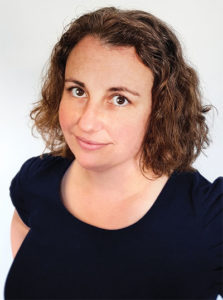Emma McDougall uncovers the rise of the New Zealand Barista Championship and its impact on the specialty coffee industry over the past 20 years. Part two of three.
During the weekend of 20 to 21 March 2021, New Zealand crowned its 19th Barista Champion. Congratulations to Luise Metelka of Flight Coffee Roasters in Wellington. Luise took the hotly contested title with Hanna Teramoto (2014 NZBC winner) of Woozoo Group runner-up and Frank Hsu of Franks Coffee in Wellington coming third for a third time.

The vibe around the Championships was palpable. Indeed, the Championship lends itself to excitement. Why does a coffee competition create such emotions? After a particularly intense year of planning, delaying, and postponing, full credit goes to our community for supporting and believing in us all along. More about what happened in March 2021 to come in another article.
What gives the Championship it’s longevity? With anything, the secret is in the planning and construction of the concrete base layer to build the foundations of a great competition. A key moment in the NZ Barista Championship timeline saw the association adopt the hosting from Robert Harris, thus expanding the resources from all sides in the industry and eliminating any politics from perceived commercial competition. To this day, the meticulously planned details and sweating the small stuff has led to growth.
Two names continued to alternate at the top during these middle years. The winning wave of Christchurch baristas Carl Sara and Luciano Marcolino consistently placed on the podium, with a top ranking of third from Carl at the World Barista Championship in Tokyo 2007.
Did they quite simply they know the scoresheets inside out?
“It’s very well to look at the score sheet and follow how it reads, but what are the rules and regulations?” These were Emma Markland Webster’s words to me when I asked about changes in the score sheets, technical weightings, and how the rules and regulations had evolved. Essentially, along with change at national level in NZ, the governing body was making changes too.
I asked Emma more about the rules and judging. She said, “while changes where happening at a national level, a deliberate careful evolution was happening at world level.” Emma elaborated: “Judging calibration at national level was always conducted very seriously, and it was through learning by judging overseas in 2009-10 that we were able to create a strong impact to bring out the best of our judges.”
Workshops were created for judges and competitors to further peel back the understanding of what the competition was about rather than the individual interpretation of the score sheets.
Indeed, at my first (and only soiree into competing at a Barista Championship) in 2004 in Ireland, I put cinnamon on top of the cappuccino round. I simply hadn’t read the rules and I was desperate to race through the routine in 12 minutes, thinking that speed was the key. While my routine wasn’t ideal, the learnings off stage and working with other competitors was key. I shared my equipment. I learned more about coffee from other baristas. I even got to watch a young Stephen Morrisey bring along his own grinder (unheard of) and use freshly roasted coffee and take out second place.
Alongside, compared to population, the growth of NZ judges saw them well represented on the international stage. This led to a trickle-down effect of baristas/ judges travelling overseas, gaining skills, ideas, and knowledge of this world event. Emma says that the judge’s certification helped this process.
“The common goal to knowledge share among our competing baristas and new judges saw the standard rise. One thing that is a constant within NZ and on the international stage is not the winning, but the participation. Don’t get us wrong, winning a world title would be awesome. But being open, honest and welcoming to all and having a laugh along the way is critical. We put all company rivalries to one side and assist each other in stiving to be better,” said Emma.
In part three, we will navigate the ‘teenage years’ and growth of the competition.
The Meadow Fresh NZ Barista Championship 2022 will take place from 13 to 14 March, 2022 at Expression Arts and Entertainment Centre in Upper Hutt, Wellington.
Read Part 1 HERE.
For more information on the New Zealand Specialty Coffee Association, or to join, visit www.nzsca.org
This article appears in the June 2021 edition of BeanScene. Subscribe HERE.




